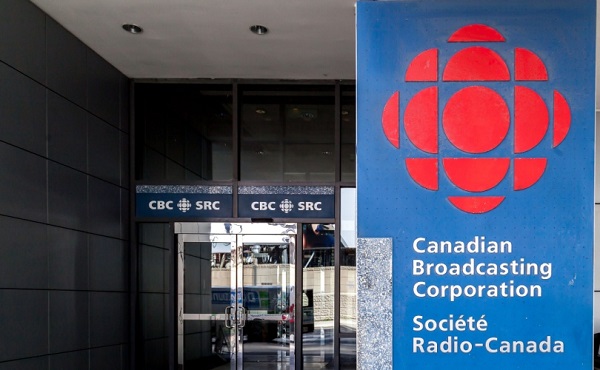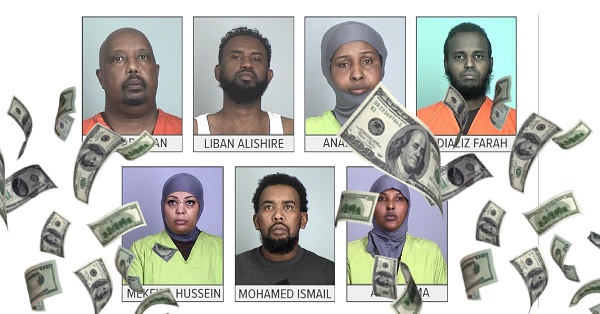Business
Liberals to increase CBC funding to nearly $2 billion per year

From LifeSiteNews
The Department of Canadian Heritage promised funding to offset the Canadian Broadcasting Corporation’s nearly 10 percent drop in ad revenue last year despite an audience share of 1.7 percent, meaning over 98 percent of the country is not watching the network.
The Liberal government has promised to spend millions of taxpayer dollars to compensate CBC-TV for ads that the network cannot sell.
According to information released January 20 by Blacklock’s Reporter, the Liberal-run Department of Canadian Heritage will give CBC millions more, bringing the network’s total parliamentary grant near $2 billion a year.
“The CBC has been grappling with a range of financial pressures that are challenging its ability to maintain programming and service levels,” Liberals argued, adding that their department will be “providing additional funding to make it less reliant on private advertising with a goal of eliminating advertising during news and other public affairs shows.”
“The CBC is a pillar of Canada’s creative economy, a key provider of programming made by and for Canadians and a significant source of trusted news and information,” Liberals claimed.
“This government is committed to ensuring the sustainability of the CBC so that it can continue to create public value and adapt to the needs and expectations of Canadians,” the department continued.
The increased government subsidies come after an October report found that CBC’s advertising revenue dropped nearly 10 percent last year.
Furthermore, CBC’s own quarterly report found that its network audience share is only 1.7%, meaning more than 98% of Canadians are not watching CBC.
However, Liberals have chosen to ignore the fact that Canadians are not watching CBC, instead spending millions of dollars to prop up the failing outlet.
Beginning in 2019, Parliament changed the Income Tax Act to give yearly rebates of 25 percent for each news employee in cabinet-approved media outlets earning up to $55,000 a year to a maximum of $13,750.
The Department of Canadian Heritage since admitted that the payouts are not even sufficient to keep legacy media outlets running and recommended that the rebates be doubled to a maximum of $29,750 annually.
Last November, Prime Minister Justin Trudeau again announced increased payouts for legacy media outlets that coincide with the leadup to the 2025 election. The subsidies are expected to cost taxpayers $129 million over the next five years.
That amount to the CBC is in addition to massive media payouts that already make up roughly 70 percent of its operating budget and total more than $1 billion annually.
However, many have pointed out that the obscene amount of money thrown at CBC by Liberals is a ploy to buy the outlet’s loyalty.
Furthermore, in October, Canadian Heritage Minister Pascale St-Onge’s department admitted that federally funded media outlets buy “social cohesion.”
Additionally, in September, House leader Karina Gould directed mainstream media reporters to “scrutinize” Conservative Party leader Pierre Poilievre, who has repeatedly condemned government-funded media as an arm of the Liberals.
Gould’s comments were in reference to Poilievre’s promise to defund the CBC if elected prime minister. Poilievre is a longtime critic of government-funded media, especially the CBC.
Business
DOOR TO DOOR: Feds descend on Minneapolis day cares tied to massive fraud

Federal agents are now going “DOOR TO DOOR” in Minneapolis, launching what the Department of Homeland Security itself describes as an on-the-ground sweep of businesses and day-care centers tied to Minnesota’s exploding fraud scandal — a case that has already burned through at least $1 billion in taxpayer money and is rapidly closing in on Democrat Gov. Tim Walz and his administration.
ICE agents, working under the umbrella of the Department of Homeland Security, fanned out across the city this week, showing up unannounced at locations suspected of billing state and federal programs for services that never existed. One day-care worker told reporters Monday that masked agents arrived at her facility, demanded paperwork, and questioned staff about operations and enrollment.
“DHS is on the ground in Minneapolis, going DOOR TO DOOR at suspected fraud sites,” the agency posted on X. “The American people deserve answers on how their taxpayer money is being used and ARRESTS when abuse is found.”
DHS is on the ground in Minneapolis, going DOOR TO DOOR at suspected fraud sites.
The American people deserve answers on how their taxpayer money is being used and ARRESTS when abuse is found. Under the leadership of @Sec_Noem, DHS is working to deliver results. pic.twitter.com/7XtRflv36b
— Homeland Security (@DHSgov) December 29, 2025
Authorities say the confirmed fraud already totals roughly $300 million tied to fake food programs, $220 million linked to bogus autism services, and more than $300 million charged for housing assistance that never reached the people it was meant to help. Investigators from the FBI, Justice Department, and Department of Labor have now expanded their probes after a viral investigation exposed taxpayer-funded day cares that received more than $1 million each while allegedly serving few — or zero — children.
One of the most glaring examples, the Minneapolis-based Quality “Learing” Center — infamous for its misspelled sign — suddenly appeared busy Monday as national media arrived. Locals told reporters the center is typically empty and often looks permanently closed, despite receiving about $1.9 million in public funds. State inspection records show the facility has racked up 95 violations since 2019. Employees allegedly cursed at reporters while children were bused in during posted afternoon hours.
DHS officials say the “DOOR TO DOOR” operation is deliberate. In videos released online, agents are seen questioning nearby business owners about whether adjacent buildings ever had foot traffic, whether they appeared open, and whether operators used subcontractors or outside partners to pad billing. DHS Secretary Kristi Noem posted footage of agents pressing workers about business relationships and transportation services used by suspected fraud sites.
“This is a large-scale investigation,” DHS Assistant Secretary Tricia McLaughlin told the New York Post, confirming that Homeland Security Investigations and ICE are targeting fraudulent day-care and health-care centers as well as related financial schemes.
FBI Director Kash Patel warned that what investigators have uncovered so far is “just the tip of a very large iceberg.” He pointed to the bureau’s dismantling of a $250 million COVID-era food-aid scam tied to the Feeding Our Future network, a case that resulted in 78 indictments and 57 convictions. Patel has also made clear that denaturalization and deportation remain on the table for convicted fraudsters where the law allows.
Dozens of arrests have already been made across the broader scheme, many involving Somali immigrants, though federal officials stress the investigation targets criminal behavior — not communities. Some local residents say the scandal is hurting law-abiding families. One Somali Uber driver told reporters he works 16-hour days and is furious that “some people are taking advantage of the system,” making the entire community look bad.
Now, with federal agents going “DOOR TO DOOR” across Minneapolis, the era of polite indifference appears to be over. The message from Washington is blunt: the money trail is being followed, the paperwork is being checked, and the days of treating taxpayer-funded programs like an open vault are coming to an end.
Business
Feds pull the plug on small business grants to Minnesota after massive fraud reports

The Small Business Administration is moving to freeze grant money flowing into Minnesota after explosive allegations of large-scale fraud tied to state oversight failures, with SBA Administrator Kelly Loeffler signaling an immediate crackdown following recent independent reporting.
In a series of comments shared publicly by conservative commentator Benny Johnson, Loeffler said the agency is “cutting off and clawing back” SBA grants to the state while investigators dig deeper into what she described as a rapidly expanding fraud network.
Johnson wrote that Loeffler told him she was “disgusted and sickened” after reviewing footage from YouTuber Nick Shirley, whose on-the-ground reporting in Minnesota highlighted what he said were sham daycare and learning centers collecting millions in public funds despite showing little or no sign of legitimate operations.
According to Johnson, Loeffler blamed the situation on Democrat Gov. Tim Walz, accusing his administration of refusing to enforce basic rules governing small businesses and allowing fraud to flourish unchecked.
Johnson said Loeffler told him SBA investigators were able to identify roughly half a billion dollars in suspected fraud within days of focusing on Minnesota, calling the operation an “industrial-scale crime ring” that ripped off American taxpayers.
“Pending further review, SBA is freezing all grant funding to the state in order to stop the rampant waste of taxpayer dollars and uncover the full depth of fraud,” Loeffler said, according to Johnson’s account, adding that the total scope of the scheme remains unknown and could reach into the billions.
The controversy gained national traction after Shirley posted video of himself visiting multiple facilities, including a South Minneapolis site known as the Quality Learning Center, which he reported was approved for federal aid for up to 99 children but appeared inactive during normal business hours.
The center’s sign, Shirley noted, even misspelled the word “learning” as “learing.”
In the footage, a woman inside the building is heard shouting “Don’t open up,” falsely claiming Shirley and his colleague were Immigration and Customs Enforcement agents.
After the video circulated, Rep. Tom Emmer, a Republican, publicly demanded answers from Walz, questioning how such facilities were approved for millions in taxpayer funding.
Shirley’s reporting followed earlier investigations, including a November report by City Journal alleging that members of Minnesota’s Somali community had sent millions of dollars in stolen taxpayer funds overseas, with some of that money reportedly ending up in the hands of Al-Shabaab, a U.S.-designated terrorist organization.
While Walz’s administration has insisted it takes fraud seriously, the SBA’s decision to halt grant funding marks one of the most aggressive federal responses yet, underscoring how rapidly a local scandal has escalated into a national reckoning over oversight, enforcement, and accountability in Minnesota.
-

 Digital ID2 days ago
Digital ID2 days agoCanadian government launches trial version of digital ID for certain licenses, permits
-

 Alberta2 days ago
Alberta2 days agoAlberta Next Panel calls to reform how Canada works
-

 Agriculture2 days ago
Agriculture2 days agoEnd Supply Management—For the Sake of Canadian Consumers
-

 International1 day ago
International1 day agoGeorgia county admits illegally certifying 315k ballots in 2020 presidential election
-

 Business2 days ago
Business2 days agoThe “Disruptor-in-Chief” places Canada in the crosshairs
-

 Artificial Intelligence2 days ago
Artificial Intelligence2 days agoUK Police Pilot AI System to Track “Suspicious” Driver Journeys
-

 Energy1 day ago
Energy1 day ago‘The electric story is over’
-

 International2 days ago
International2 days agoWorld-leading biochemist debunks evolutionary theory






